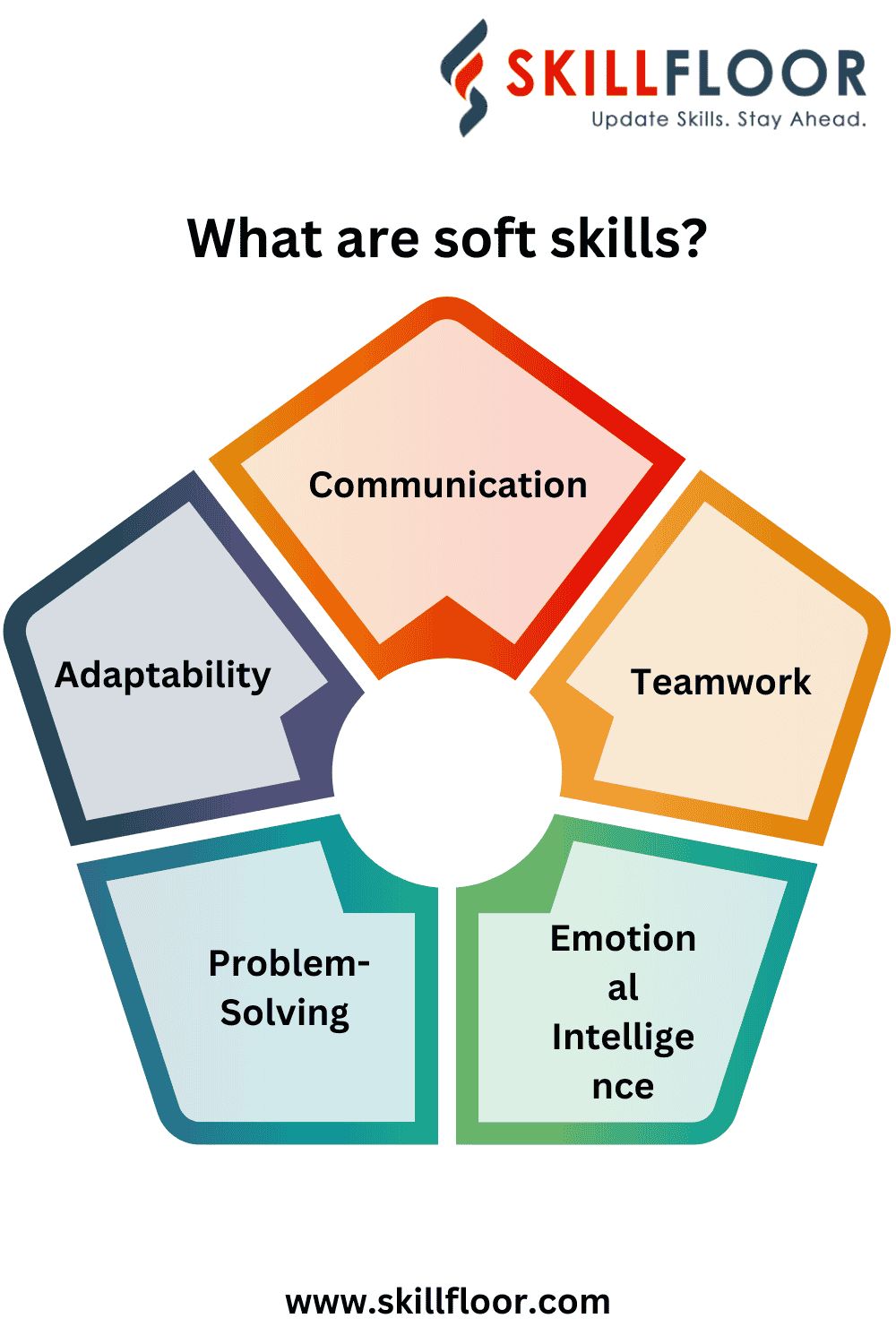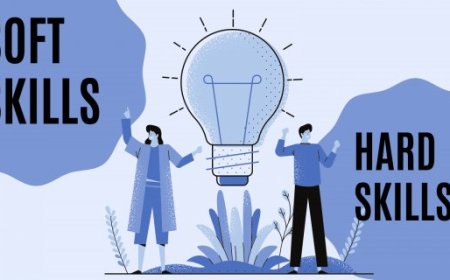The Importance of Soft Skills
Learn why soft skills are crucial for professional success and how they foster effective communication, teamwork, adaptability, and problem-solving in diverse work environments.

In the domain of professional success, soft skills reign supreme. Often overshadowed by technical expertise, these interpersonal abilities are the bedrock of effective communication, collaboration, and leadership. In a modern, difficult, and interconnected world, the significance of soft skills cannot be overstated. From navigating complex team motions to adapting to rapid changes in the workplace, individuals equipped with strong soft skills have a distinct advantage. Unlike technical skills, which can become outdated, soft skills remain timeless and universally applicable, transcending industries and job roles. As organizations increasingly recognize the value of a well-rounded skill set, the demand for individuals proficient in soft skills continues to grow.
What are soft skills?
Soft skills, also known as interpersonal skills or people skills, are the personal attributes and qualities that enable individuals to interact effectively and harmoniously with others in various situations, both professional and personal. Unlike hard skills, which are specific, teachable abilities that are typically acquired through formal education or training, soft skills are more intangible and difficult to quantify.
Soft skills encompass a wide range of attributes, including

1. Communication: Effective communication is not just about conveying information but also about ensuring that the message is understood clearly by the intended audience. This skill encompasses both verbal and written communication, as well as non-verbal cues such as body language and tone of voice. Active listening is an integral component of communication, as it demonstrates respect for others' perspectives and helps in building rapport. Additionally, the ability to persuade and negotiate is crucial in various professional contexts, whether it involves convincing clients, resolving conflicts, or gaining buy-in from team members.
2. Teamwork: Collaboration is essential for achieving common goals and driving collective success. Teamwork involves more than just working alongside others; it requires active participation, mutual respect, and a willingness to share both credit and responsibility. Effective teamwork hinges on effective communication, as team members need to express their ideas, provide feedback, and resolve conflicts constructively. Being a team player also means recognizing and valuing the strengths and contributions of each team member, fostering a supportive and inclusive work environment.
3. Adaptability: Adaptability is a crucial quality that people need to thrive in the uncertain and complex world currently, where things change quickly. Those who are adaptable view change as a chance for personal development rather than a danger to their stability. Their openness to novel concepts, viewpoints, and methods of operation demonstrates their adaptability in handling assignments and obstacles. Being resilient enables people to overcome obstacles, learn from mistakes, and recover from issues. It is a crucial component of adaptation.
4. Problem-Solving: Problem-solving is about more than just finding quick fixes; it involves systematic analysis, creative thinking, and resourcefulness. Effective problem-solvers approach challenges with a curious and analytical mindset, breaking down complex issues into manageable components. They draw on a range of tools and techniques to generate innovative solutions, thinking critically and evaluating options carefully. Collaboration often plays a key role in problem-solving, as diverse perspectives can lead to more robust and creative solutions.
5. Emotional Intelligence: Emotional intelligence refers to the ability to recognize, understand, and manage one's own emotions, as well as to empathize with the emotions of others. Individuals with high emotional intelligence are adept at regulating their emotions in various situations, remaining calm under pressure, and maintaining composure during difficult conversations. They also demonstrate empathy and sensitivity towards others, fostering positive relationships and effective communication. Social skills, such as networking and conflict resolution, are also crucial components of emotional intelligence.
6. Leadership: Leadership is a combination of abilities and traits that allow people to encourage, inspire, and direct others toward the accomplishment of shared goals. It is not restricted to official positions or titles. Proficient leaders possess a distinct perspective and effectively convey it to motivate people to unite behind common objectives. They gain the respect and trust of their teammates by acting with honesty, equity, and responsibility. Strategic thinking and decisiveness are also necessary qualities of a leader since they must be able to confidently and traverse difficult situations and make difficult decisions.
Why are soft skills important?
In modern times, soft skills are essential. professional scenery because they enable individuals to effectively travel around the complexities of the workplace and interact with others productively and harmoniously. Unlike technical skills, which focus on specific tasks or competencies, soft skills are transferable across various roles and industries, making them universally valuable. Effective communication fosters collaboration and minimizes misunderstandings, while strong teamwork promotes synergy and collective achievement. Adaptability allows individuals to thrive in ever-changing environments, while problem-solving skills empower them to overcome challenges and drive innovation. In essence, soft skills are the glue that binds teams together, facilitates smooth interactions, and ultimately contributes to individual and organizational success. Recognizing the importance of these interpersonal attributes can lead to enhanced professional effectiveness, career advancement, and overall job satisfaction.
The importance of soft skills to businesses
Soft skills are indispensable across all industries, whether you're a nurse, a hairdresser, a mechanic, or in any other profession. Strong communication skills are particularly vital, as they enable effective interaction regardless of the field. Likewise, improvements in time management can significantly enhance productivity, benefiting employees and the company alike.
1. Increased Productivity: Enhanced efficiency in tasks and responsibilities leads to greater productivity, driving the company closer to its objectives.
2. Improved Teamwork: Effective collaboration is essential for achieving common goals. Leveraging individual strengths and skills in tandem enhances the quality of work and fosters a cohesive team environment.
3. Enhanced Retention Rates: Investing in employees' career development promotes loyalty and reduces turnover. Studies show that a significant percentage of employees would consider changing employers for better training opportunities, highlighting the importance of ongoing learning and development.
4. Enhanced Employee Satisfaction: Valuing employees' growth and well-being fosters a positive work environment and boosts job satisfaction. Feeling appreciated and supported contributes to a more engaged and motivated workforce.
5. Improved Leadership: Soft skills are crucial for effective leadership. Skills such as active listening and empathy are essential for managing teams and fostering a positive work culture. Investing in leadership development prepares employees for future leadership roles, reducing turnover caused by poor management.
6. Client Attraction: Satisfied clients are more likely to recommend your company to others, leading to new business opportunities and growth.
7. Enhanced Workplace Communication: Effective communication among staff reduces the risk of misunderstandings and ensures smooth operation within the company. Clear and concise communication channels facilitate collaboration and decision-making, driving organizational success.
Refer to these blogs:-
The Impact of Soft Skills on Digital Marketing Strategies
Exploring Types of Soft Skills and Their Impact
The Importance of Soft Skills in the Modern Workplace
Professional scene, soft skills emerge as the unsung heroes, fostering effective communication, collaboration, and adaptability. Unlike technical skills, their timeless nature transcends industries, driving individual and organizational success. Recognizing their importance cultivates a positive work environment, boosts productivity, and positions individuals for career advancement. As businesses embrace the value of these interpersonal attributes, the dividends are evident – increased productivity, improved teamwork, and enhanced employee satisfaction contribute to a thriving and resilient workforce.




























































